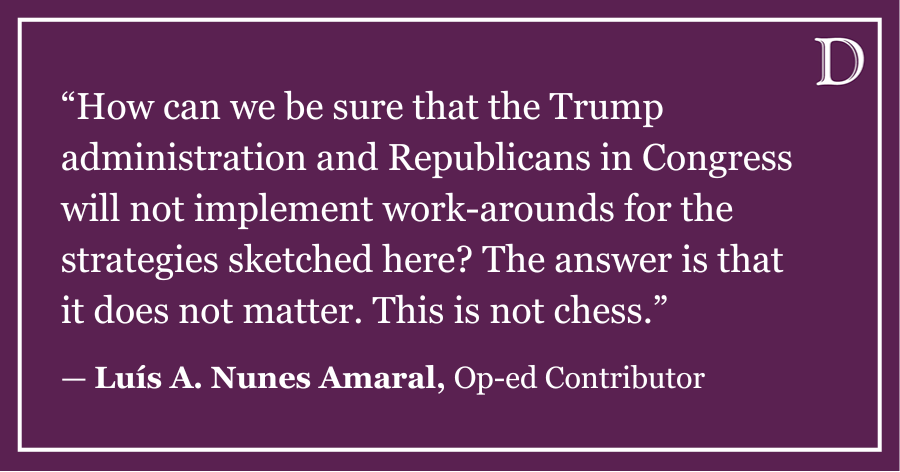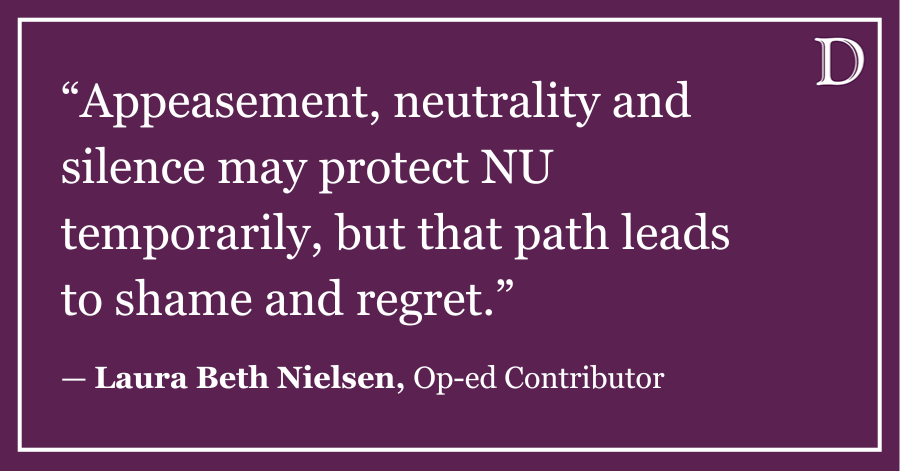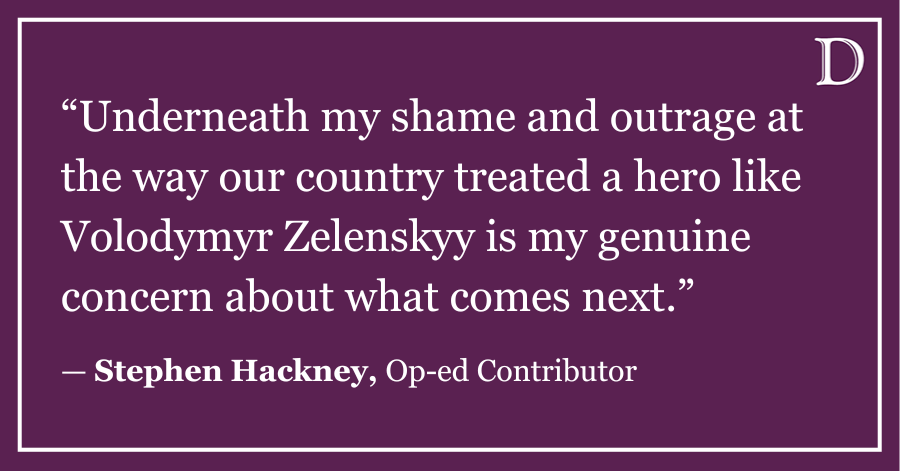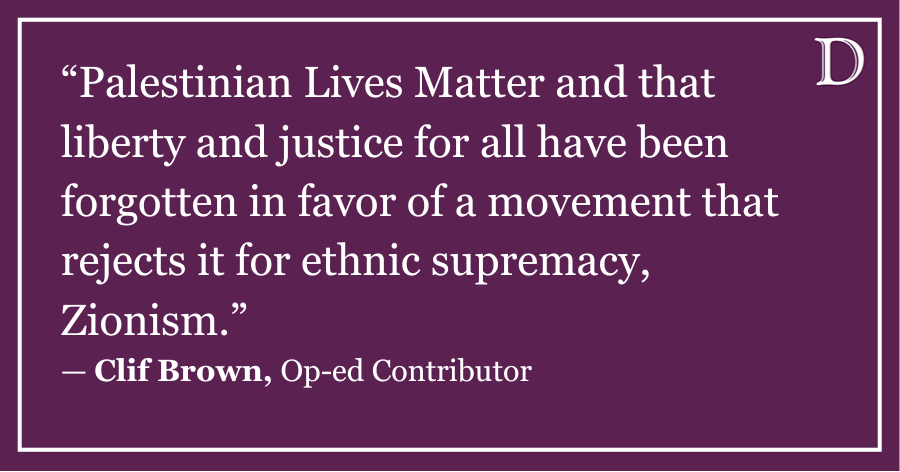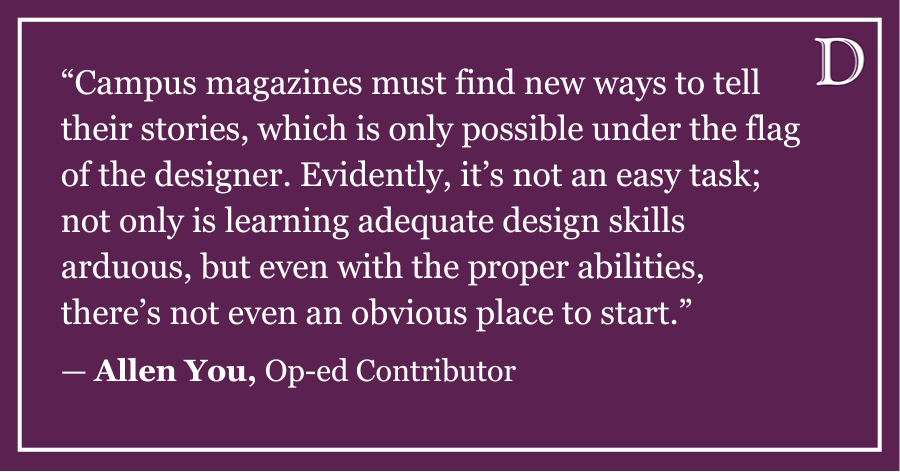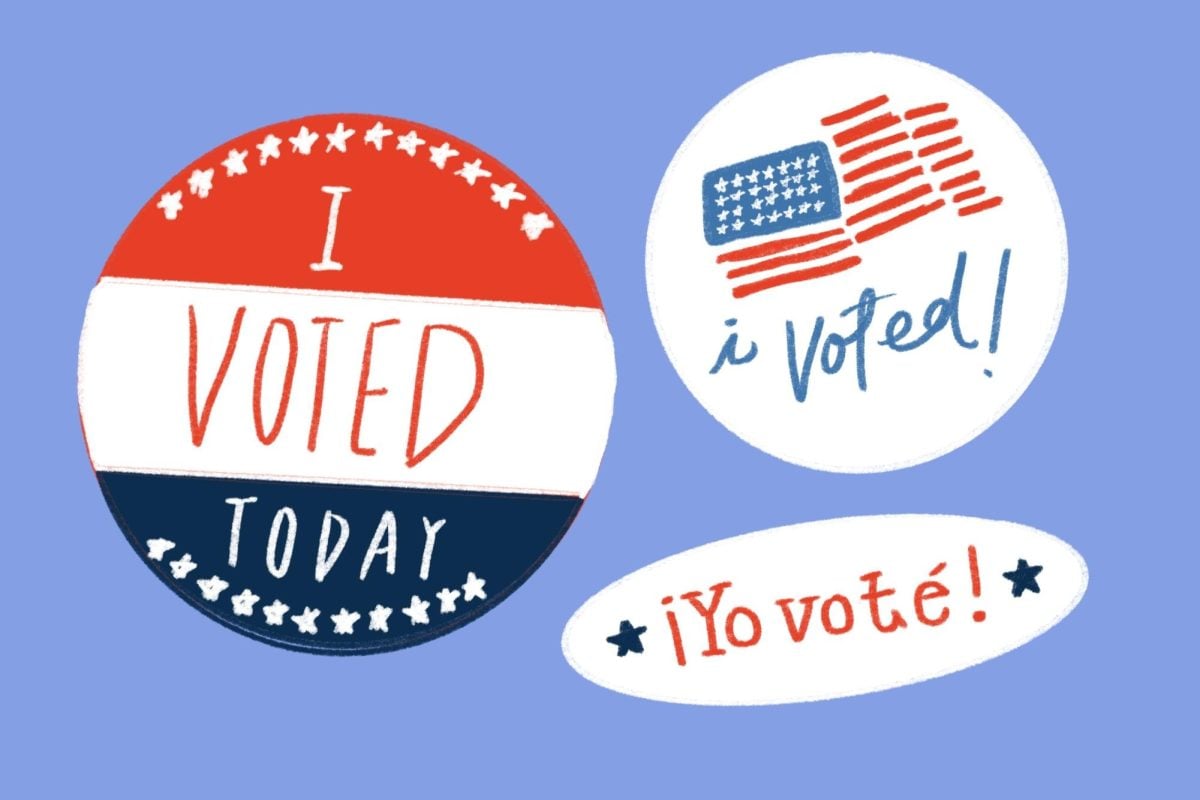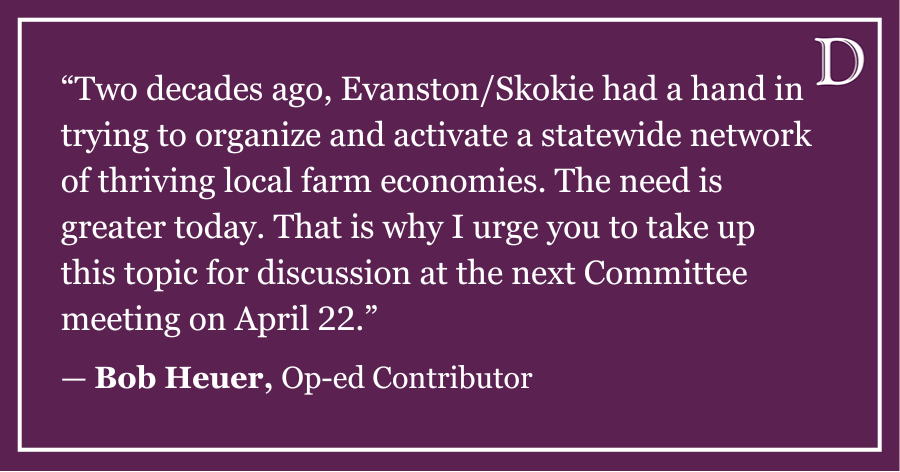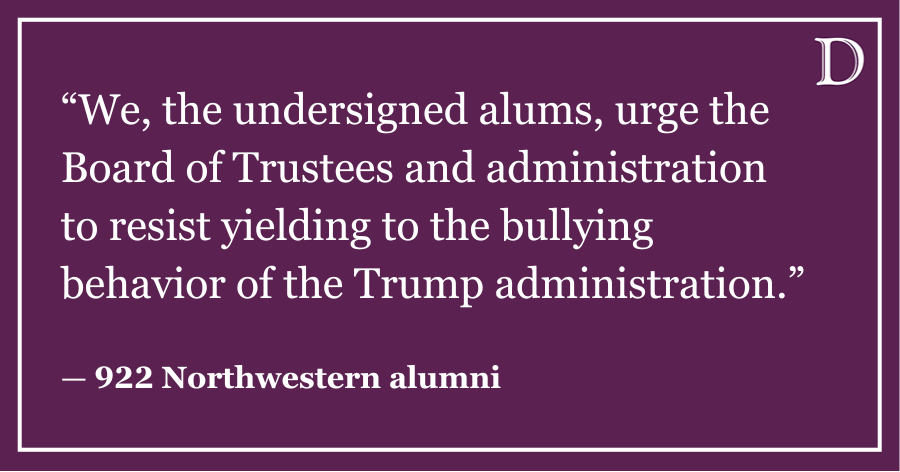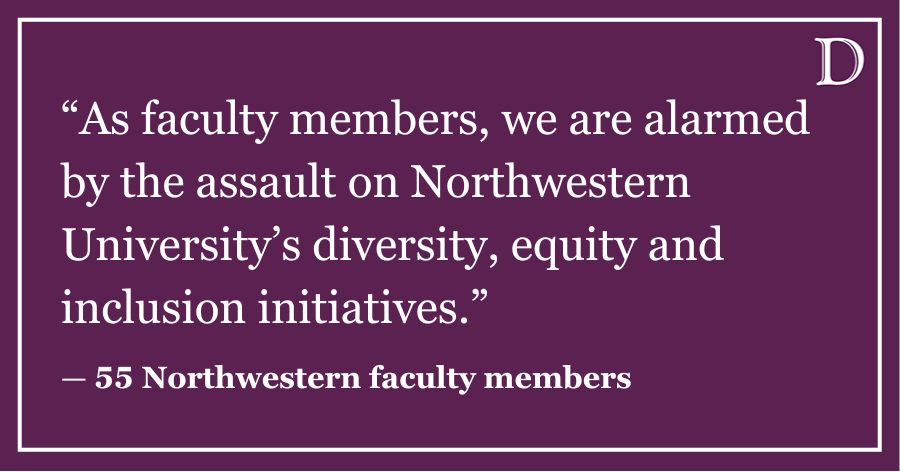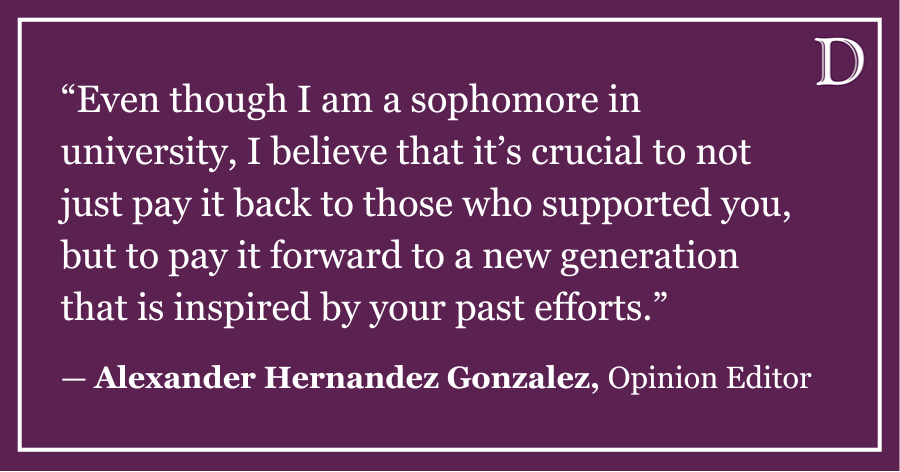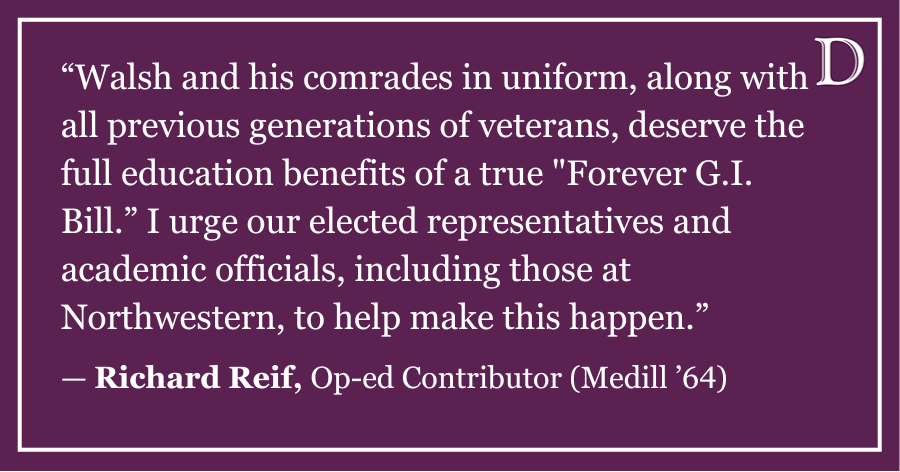As a Jew at Northwestern, I balance between two hands. One hand is open and outstretched, ready to start a conversation with a handshake. The other hand is closed shut, clinging to a defensive mechanism of vigilance I have grown accustomed to needing. I cannot ignore either of these hands.
At Jewish summer camp, I learned eilu v’eilu, the notion that sitting with difference and disagreement is good and that two conflicting ideas can each have truth to them. At the Passover seder table, I learned vehi she’amda, the mythos that in every generation, in one form or another, Jewish people have been and will be threatened. At Northwestern, within a culture stunted by social media binaries and littered with personal and hateful attacks, I continue to re-learn both of these lessons. Eilu v’eilu reminds me to make space for others, while vehi she’amda reminds me to take care of myself and my community. Eilu v’eilu is the hand that is open. Vehi she’amda is the hand that is closed. While it now may seem safer to let both hands close, one hand remains open. But I hope you will understand how difficult that is.
To those students who wish Israel would disappear, or who consider the ideology of Zionism itself akin to the most vile ills of civilization: I do not expect any interest in real dialogue now, just as I did not expect it before Oct. 7. The bitter reality is that you have demonstrated you do not respect my Jewish identity if it includes loving support for the existence, safety and wellbeing of the Jewish state. How can I have empathic dialogue with students who support and glorify Hamas, a recognized terrorist organization, as a form of legitimate and productive Palestinian resistance? How can I have empathic dialogue with students who insist that violence against Israeli citizens is justified, just for being Israeli? How can I have empathic dialogue with students who use an asterisk to spell “Isr*el” as if it is an obscenity, not the sovereign nation it has been since 1948? How can I have empathic dialogue with students who perceive Israel as an embodiment of evil?
To those students who love Israel — not blindly, but with the same depth and critique as one has for their family — and have been cut out of the campus dialogue: I feel your agony. You are refused a platform to share why you feel this love for Israel so strongly. And when you do express this love, you are intimidated and bullied by your peers. Why, then, do I continue to hold one hand open, even while the other side scoffs at my genuine requests for open dialogue? Perhaps the lesson of eilu v’eilu keeps me centered, in pursuit of this goal. Or, perhaps I am a college student, and I believe that college students should feel safe to share with and learn from one another, while balancing pride and humility.
To those students with whom I would like to have this dialogue: I am willing to move beyond the social media platitudes where we are convinced of the moral clarity in our frame of reference. Can we move past the pithy one-liners that sow division? Can we move past, “there is no context necessary”? Can we move past, “the media is biased towards the other side”? Can we move past, “I am fighting for good and you are fighting for evil”? I ache for a genuine student-driven discussion of the Israeli-Palestinian conflict where students honestly share their intimate beliefs, bravely self-criticize their frames of reference and collectively attempt to build common ground. That requires recognizing and honoring the humanity of those with whom we disagree.
My appeal to those who care not only about the sanctity of life in the Israeli-Palestinian conflict but in the humanity of their classmates at Northwestern is as follows: let’s have an empathic dialogue. Let’s bring our full selves to the table. Let’s tell each other what we believe, and what we believe in. What are you morally sure about? What is your frame of reference? I want to know your perspective and I want you to know mine, too. We should resist the temptation to fall back into our opposite echo chambers. We should not hide behind our screens, masks or other symbols of anonymity and fear. We can and should disagree with each other, face-to-face. With dignity. Peacefully. Seeing humanity in the face of our opposition. While I know we have much to disagree about, my hand is still open. I am open to listening and to learning, and most importantly, I am open to seeing you as a human being. I hope you are open to the same.
Ethan Less is a Weinberg senior. He can be contacted at ethanless2024@u.northwestern.edu. If you would like to respond publicly to this op-ed, send a Letter to the Editor to opinion@dailynorthwestern.com. The views expressed in this piece do not necessarily reflect the views of all staff members of The Daily Northwestern.

